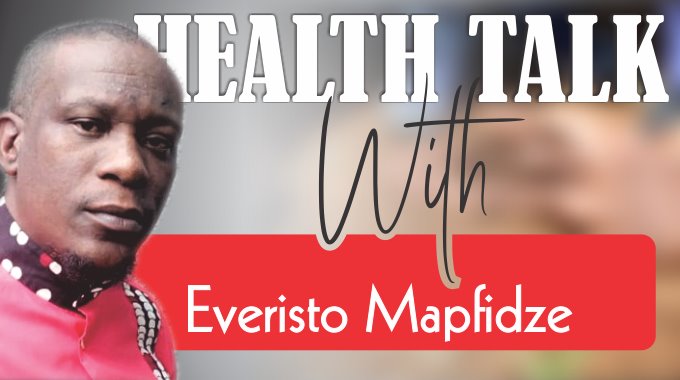
The Sunday Mail


Approximately $455 billion of the $7,35 trillion spent on health care annually worldwide is lost to fraud and corruption, according to Gee and Button (2015).
Today, the twin scourge of coronavirus and corruption is increasingly threatening humanity. And fighting the “toxic nexus” requires a concerted effort from all and sundry.
As the world grapples with the Covid-19 impact, the vice of corruption ought to be nipped in the bud.
More so, it can be a matter of life and death in poor countries. Vulnerable populations are more often the worst affected.
Corruption has become a malignant cancer, debilitating health systems in both rich and poor countries.
In the wake of a ravaging global pandemic, crucial decisions are hastily made. Most procurement protocols are forgone, exposing health systems to corruption.
The Organisation for Economic Co-operation and Development (2017) estimated that 45 percent of global citizens believe that the health sector is corrupt or very corrupt.
Actually, corruption has become a complex and multi-faceted challenge.
Bribery, nepotism, embezzlement, theft, mismanagement and absenteeism are all forms of corruption in the health sector.
And research has unequivocally linked corruption to negative health impacts.
Poor staffing at facilities and longer wait times due to absenteeism, less equitable care, poor quality or availability of drugs, and unnecessary additional financial burden are some of the impacts.
Corruption effects on a population’s health are not always clear and direct, but, are present nonetheless.
Even so, the effects can be degrading, negatively affecting the health of a society in many ways.
On a global scale, 1,6 percent of annual deaths in children under 5 – more than 140 000 deaths – can be explained in part by corruption.
And with coronavirus claiming many lives, affirmative and decisive action is very important in saving humanity.
Absenteeism is a commonly cited form of corruption.
It is often a result of health practitioners working in the private sector. So when they are dually scheduled, the public sector typically suffers.
Due to sanctions-induced soaring economic conditions in Zimbabwe, health care workers have since adopted two-day work shifts.
All along, locum duties often with better returns, were considered a major cause of absenteeism in the public health sector.
According to the Afrobarometer surveys, more than 50 percent of respondents across 25 countries reported absenteeism in a recent health care experience.
The number ranged from 23 percent in Burundi to as high as 90 percent in Morocco (Kankeu, 2008).
Consequently, patients who rely on the poorly staffed public facilities face long wait times and health care that is not patient-centred.
In this pandemic era, most health services are operating at low capacity. Vulnerable populations are desperately exposed to unscrupulous health workers.
Informal payments – bribes or kickbacks – are a form of corruption. These are made in cash or in kind by patients or relatives “outside official payment channels”.
According to Maestad and Mwisongo (2011), “Such payments are usually made directly to individual providers to either access care, avoid queues, receive more attention or better care, or even express gratitude”.
Due to paltry health workers’ salaries, the phenomenon can appear to be an understandable part of a broken system.
These payments are sometimes called “coping strategy” for health care workers to make up for remuneration that does not match their perceived efforts (Kankeu et al., 2016).
Syndicated informal payments are prevalent in health care systems. These are usually initiated in outpatients or in wards for hospitalised patients.
Regrettably, it has since become “common knowledge” for one to pay informally to get medical or surgical attention.
A study investigating informal payments across 33 countries in Africa discovered that they can be highly regressive.
Unfortunately, demands for informal payments and actual payments are concentrated among the poorest.
According to the study, “the frequency of informal payment is large ranging from 3 percent in Peru to 96 percent in Pakistan.
Healthcare mismanagement of resources and theft of supplies, whether drugs, diagnostic equipment or even spare parts is another form of corruption.
In fact, perpetrators are usually hospital administrators, who connive to deal with companies to only purchase their equipment.
This form of corruption often results in the “equipment graveyard” phenomenon. New equipment will sit un-used at an institution because of structural incompatibilities.
In Zimbabwe, the Parliamentary Committee on Health was seized with a suspected case of “equipment graveyard” at Sally Mugabe Central Hospital.
Covid-19 requires compatible equipment, and administrators must not endanger the lives of populations by fuelling corruption.
Pilfering of supplies is a common form of corruption.
According to Nishtar (2010), “Medicines and equipment are siphoned out along the entire supply chain, from stages of procurement to their delivery to final destination”.
Medicines are often diverted for resale. And records can be created for “ghost patients” who allegedly received medicine.
Another study in Uganda found that more than two-thirds of drugs that were supposed to be free were “lost” (McPake et al., 1999).
Crucially, there are many strategies to employ for reforming health care systems to minimise corruption and malpractice.
Researchers and policy makers from many countries have been calling for higher salaries. This will discourage health workers from requesting tips or bribes.
In the absence of adequate remuneration to support themselves and their families, health care workers may use their position to increase their income.
Nevertheless, raising salaries alone will not be enough. This must be supported by labour laws, professionalisation, and adapted codes of conduct and monitoring of payment schemes.
As we battle the “toxic nexus”, it is incumbent upon all responsible citizens to shun corruption. And more importantly, religiously follow prescribed health protocols.
Desist from any forms of corruption, wear a face mask, exercise social distancing, practise hand hygiene and stay at home.
Everisto Mapfidze is a registered general nurse who holds a Bsc Honours in Sociology (UZ). For feedback: [email protected]



